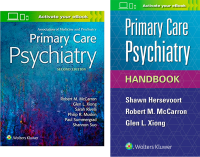The primary goal of the TNT PCP fellowship is to provide mentorship and teaching skills in the area of primary care psychiatry. Trainees will learn:
- How to complete an evidence-based and efficient psychiatric interview in the busy primary care or medical setting
- How to effectively diagnose and treat commonly encountered psychiatric conditions such as mood, anxiety, psychotic and substance use disorders
- How to teach these principles to their primary care colleagues
Trainees will learn in small and large group settings, focusing on how to teach information and skills learned to providers in their region. The program is designed for primary care providers working in Internal Medicine, Family Medicine, Emergency Medicine, Pediatrics, Neurology or Pharmacy. Past fellows have included MDs, DOs, NPs, PAs and PharmDs.
Note that this is not a traditional or Accreditation Council for Graduate Medical Education (ACGME)-approved fellowship.
The curriculum includes over 50 hours of required training and will lead to a certificate of completion from the UCI School of Medicine.
- Fellowship cohorts begin in January and end in December
- Two mandatory intensive training sessions (in-person):
- Friday and Saturday in January
- Friday and Saturday in August
- Live webinars on the second Monday at noon and the third Monday at 5:15 PM (Pacific Time) via Zoom
- Minimum of one hour per month of mentoring sessions with a TNT faculty member
- Optional "open office hours" in specialized areas
- No cost career-long learning and mentorship for alumni
TNT PCP fellows must complete the following to receive a UCI School of Medicine certificate of completion:
- Attend and participate in both weekend learning sessions
- Attend at least 80 percent of teleconferenced teaching sessions
- Participate in 11 hours of small group mentorship (February–December)
- Complete all surveys
The primary goal of the TNT PCP fellowship is to provide mentorship and teaching skills in various areas of psychiatry. Trainees will learn:
- How to complete an evidence-informed & efficient psychiatric interview in the busy primary care/medical setting
- How to effectively diagnose and treat commonly encountered psychiatric conditions such as mood, anxiety, psychotic, and substance misuse disorders
- How to teach these principles to their primary care colleagues
Get Started
Learn more about the application process, program requirements, scholarship opportunities and how to get in touch.

- The primary care-based psychiatric interview using the "AMPS model"
- The mental status examination
- How to practice culturally and linguistically competent patient care
- Mood disorders
- Anxiety disorders
- Trauma-related disorders
- Substance misuse disorders
- Primary and secondary psychotic disorders
- Somatic symptoms disorders
- Pain psychiatry
- Neurocognitive disorders
- Personality disorders
- Suicide risk assessment in the primary care setting
- Cognitive behavioral therapy
- Supportive psychotherapy
- Motivational interviewing
- Fundamentals of psychopharmacology
- Population-based/collaborative care
- Cultural Psychiatry and utilization of the Recovery Care Model
- Overview on how to train providers in primary care psychiatry
- Whole-person behavioral health
This activity series has been approved for AMA PRA Category 1 Credits™.
Reading materials will be provided, including a primary care psychiatry curriculum, which was developed by UCI TNT faculty. An emphasis will be placed on how best to provide culturally/linguistically competent and person-centered clinical care.

Pre-, mid- and post-testing will be used to measure changes in practice patterns and general knowledge in primary care psychiatry.